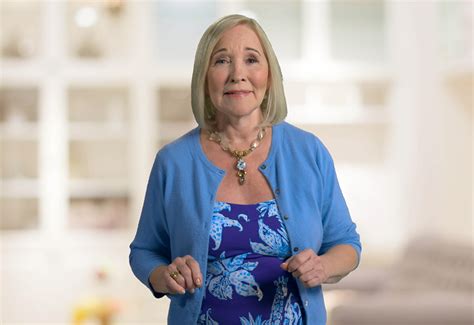A Quote by Anna Funder
one does not remember one’s own pain. It is the suffering of others that undoes us
Related Quotes
Compassion allows us to use our own pain and the pain of others as a vehicle for connection. This is a delicate and profound path. We may be adverse to seeing our own suffering because it tends to ignite a blaze of self-blame and regret. And we may be adverse to seeing suffering in others because we find it unbearable or distasteful, or we find it threatening to our own happiness. All of these possible reactions to the suffering in the word make us want to turn away from life.
Pain in life is inevitable but suffering is not. Pain is what the world does to you, suffering is what you do to yourself [by the way you think about the 'pain' you receive]. Pain is inevitable, suffering is optional. [You can always be grateful that the pain is not worse in quality, quantity, frequency, duration, etc]
It is our own pain, and our own desire to be free of it, that alerts us to the suffering of the world. It is our personal discovery that pain can be acknowledged, even held lovingly, that enables us to look at the pain around us unflinchingly and feel compassion being born in us. We need to start with ourselves.
To the extent that our experience of suffering reminds us of what everyone else also endures, it serves as a powerful inspiration to practice compassion and avoid causing others pain. And to the extent that suffering awakens our empathy and causes us to connect with others, it serves as the basis of compassion and love.
I have felt the pain that arises from a recognition of beauty, pain we hold when we remember what we are connected to and the delicacy of our relations. It is this tenderness born out of a connection to place that fuels my writing. Writing becomes an act of compassion toward life, the life we so often refuse to see because if we look too closely or feel too deeply, there may be no end to our suffering. But words empower us, move us beyond our suffering, and set us free. This is the sorcery of literature. We are healed by our stories.
To understand suffering, you must go beyond pain and pleasure. Your own desires and fears prevent you from understanding and thereby helping others. In reality there are no others, and by helping yourself you help everybody else. If you are serious about the suffering of mankind, you must perfect the only means of help you have, yourself.
Of course fear does not automatically lead to courage. Injury does not necessarily lead to insight. Hardship will not automatically make us better. Pain can break us or make us wiser. Suffering can destroy us or make us stronger. Fear can cripple us, or it can make us more courageous. It is resilience that makes the difference.
Great art suspends the reverted eye, the lamented past, the anticipated future: we enter with it into the timeless present; we are with God today, perfect in our manner and mode, open to the riches and the glories of a realm that time forgot, but that great art reminds us of: not by its content, but by what it does in us: suspends the desire to be elsewhere. And thus it undoes the agitated grasping in the heart of the suffering self, and releases us - maybe for a second, maybe for a minute, maybe for all eternity - releases us from the coil of ourselves.


































